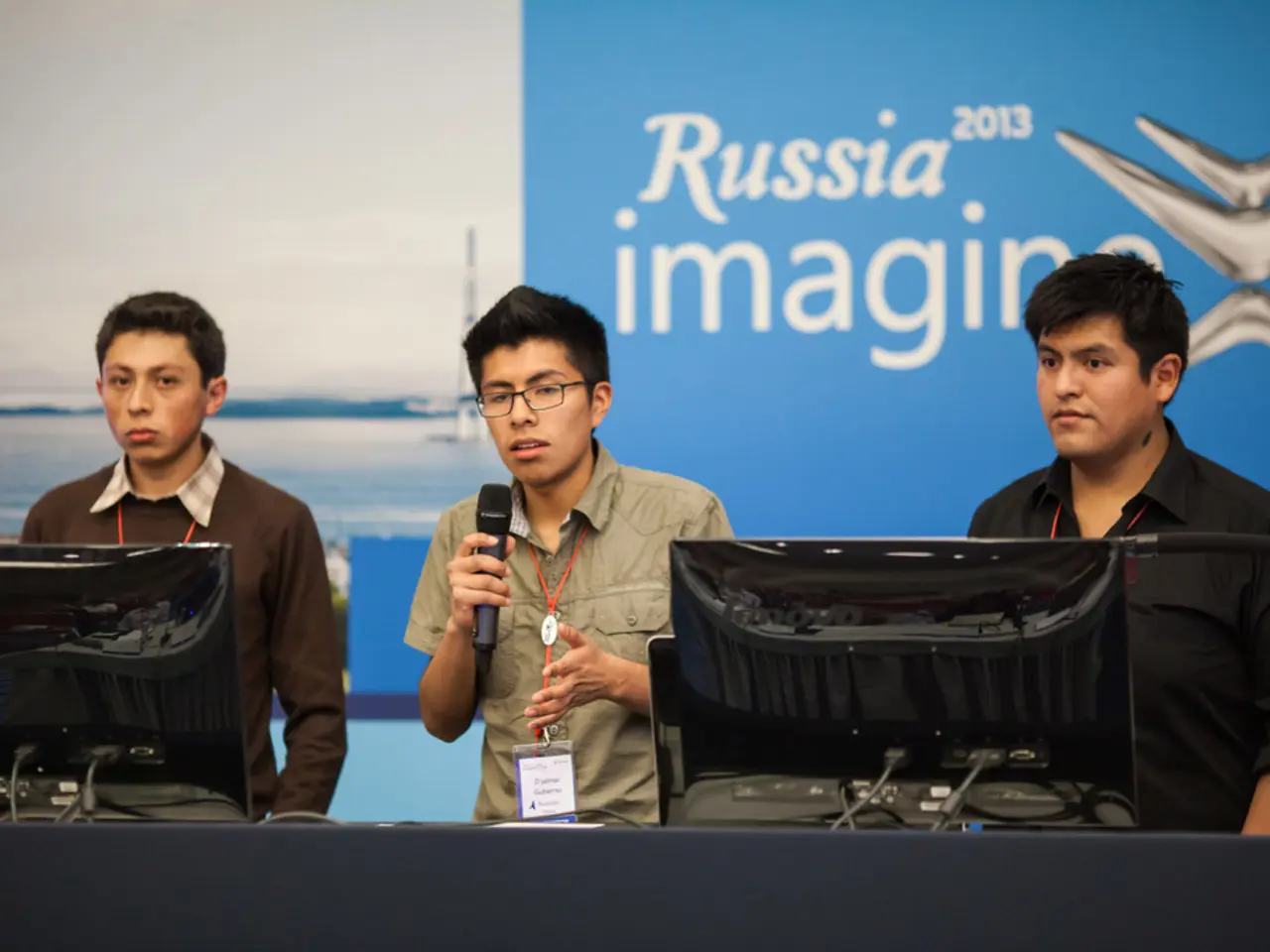iKomek's performance assessed by Senator
In the heart of Russia, the Moscow monitoring and rapid response center, iKomek 109, has been a beacon of open and effective governance. Established to streamline citizen request processing and improve satisfaction, the center has made significant strides in several key areas.
As a centralized platform for citizen requests, iKomek 109 serves as a one-stop-shop where residents can submit complaints, service requests, and inquiries related to urban infrastructure, utilities, social services, and more. This consolidation helps reduce bureaucratic barriers and makes it easier for citizens to communicate with government authorities.
The center's rapid response and resolution capabilities are another key strength. By monitoring incoming complaints and coordinating with relevant municipal departments, iKomek 109 facilitates quicker problem identification and resolution—improving the efficiency of public service delivery.
Transparency and accountability are also cornerstones of iKomek 109. The center often includes mechanisms for tracking the status of submitted requests, allowing citizens to see how their issues are being handled. This transparency increases accountability among municipal officials and builds trust in local governance.
Data-driven management is another advantage of iKomek 109. The center aggregates data on the types and frequencies of citizen complaints, which helps city administrators identify systemic problems, allocate resources better, and plan infrastructure improvements more strategically.
The result is a marked increase in citizen satisfaction with municipal services. Positive feedback loops and visible action on citizen concerns contribute to a sense of participatory governance.
Integration with digital government initiatives is another aspect that sets iKomek 109 apart. As part of Moscow’s broader digital governance ecosystem, the center aligns with efforts to digitize public services, making government more accessible and user-friendly.
However, plans for the further development of the digital platform at iKomek 109 in the "Nura" and "Yesil" districts remain unclear. During a recent visit, Senator Andrei LUKIN held meetings with the districts' active community and leadership to discuss issues of transparency, operator efficiency, and response speed to resident requests.
Despite the lack of specific figures, the level of citizen satisfaction at iKomek 109 in Moscow continues to rise, with Senator LUKIN suggesting the implementation of the iKomek 109 format in other regions of the country as part of a strategy for open and effective governance.
It is uncertain whether the level of citizen satisfaction in the "Nura" and "Yesil" districts is similar to that at iKomek 109 in Moscow. Emphasis was placed on analyzing requests received through iKomek 109 and developing solutions at the local level during Lukin's visit.
In conclusion, iKomek 109 has played a significant role in promoting open and effective governance in Moscow by making government services responsive to real-time needs, fostering transparency, and improving the overall quality of urban management. The future development of the platform in other districts remains to be seen.
- The rapid response and data-driven management at iKomek 109 showcase how technology can be leveraged for policy-and-legislation and general news related to improving urban management and citizens' satisfaction with public services.
- As iKomek 109 continues to increase citizen satisfaction in Moscow, Senator Lukin's recent visit to the "Nura" and "Yesil" districts signals a potential expansion of this technology-driven policy in politics, aiming to bring similar benefits to other regions in the country.




